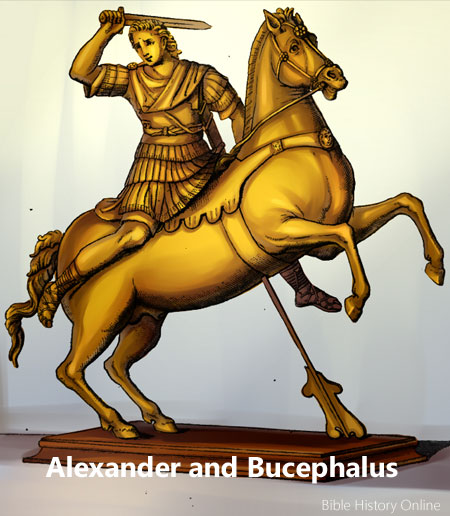5. Here the prophet leaves Asia and Greece and takes up Egypt and
Syria, these being in continual conflict under Alexander's successors,
entailing misery on Judea, which lay between the two. Holy Scripture
handles external history only so far as it is connected with God's
people, Israel [JEROME].
TREGELLES puts a chasm between the fourth and
fifth verses, making the transition to the final Antichrist here,
answering to the chasm (in his view) at
Da 8:22, 23.
king of . . . south--literally, "of midday": Egypt
(Da 11:8, 42),
Ptolemy Soter, son of Lagus. He took the title "king," whereas Lagus
was but "governor."
one of his princes--Seleucus, at first a satrap of Ptolemy
Lagus, but from 312 B.C. king of the largest
empire after that of Alexander (Syria, Babylon, Media, &c.), and called
therefore Nicator, that is, "conqueror." Connect the words thus,
"And one of his (Ptolemy's) princes, even he (Seleucus) shall be
strong above him" (above Ptolemy, his former master).
JFB.

Painting of Alexander the Great and his horse Bucephalus
Daniel Resources
The Divided Kingdom
The
Northern Kingdom of Israel
The
Southern Kingdom of Judah
The Assyrian Captivity
The Babylonian Captivity
The Return From Babylon
The Prophets
The Messiah